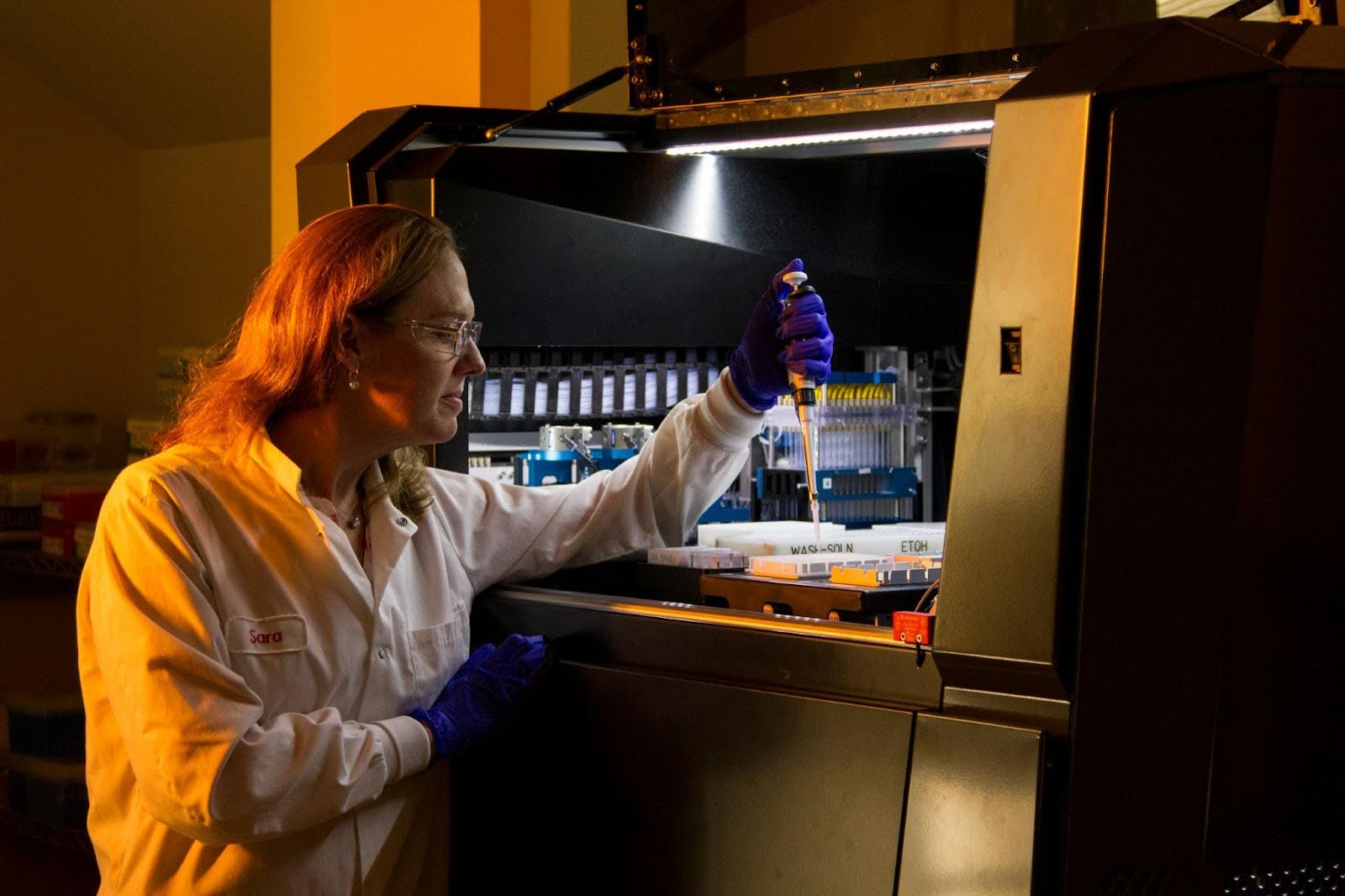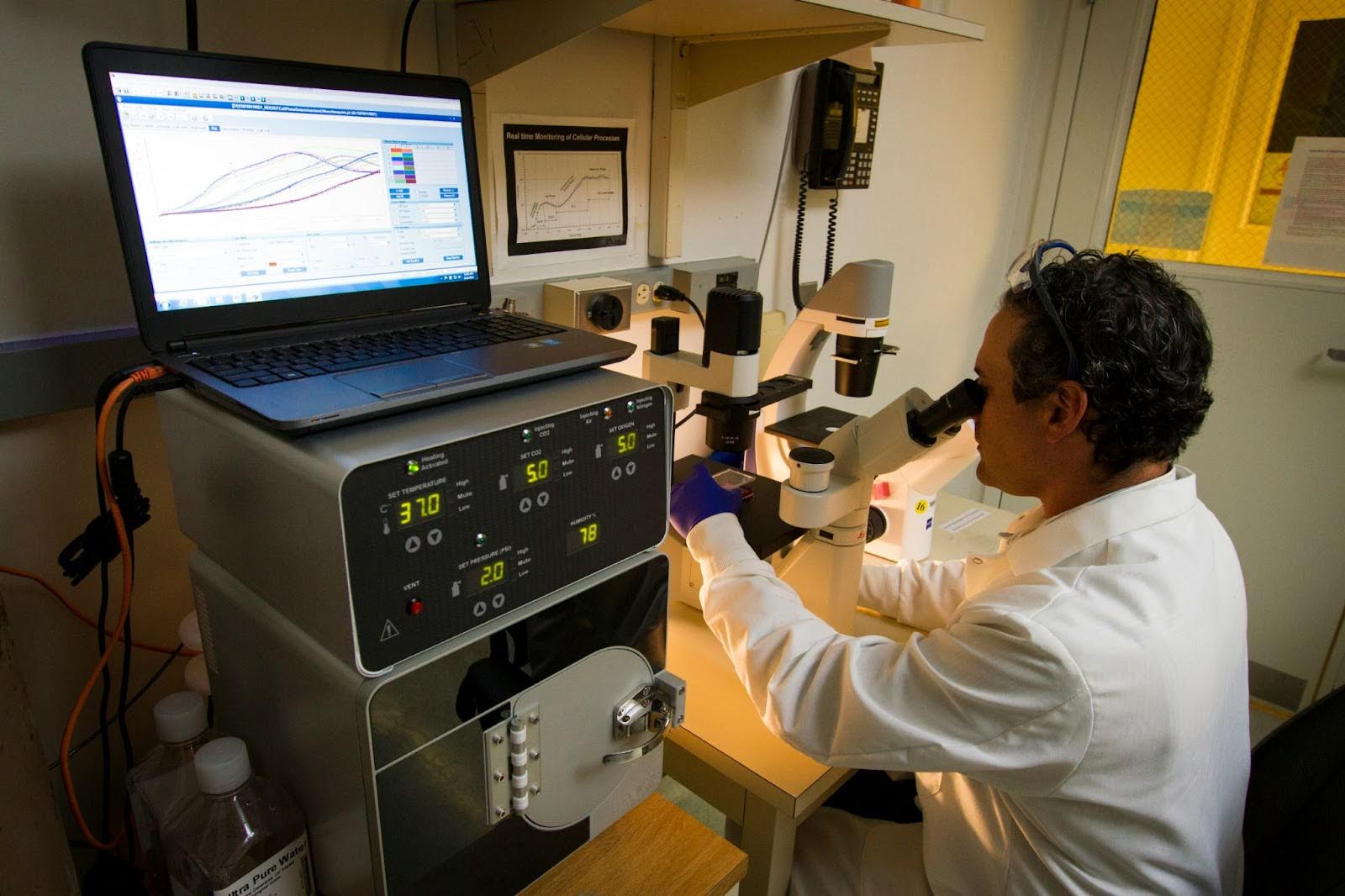Key Takeaways:
- Importance of Early Detection: Early detection of colorectal cancer through colonoscopy significantly increases survival rates and can prevent cancer by removing precancerous polyps.
- Recommended Screening Guidelines: Experts recommend starting colonoscopy screening at age 45 for average-risk individuals, but earlier screening may be necessary for those with a family history or other risk factors.
- Colonoscopy Preparation Steps: Preparing for a colonoscopy involves following a special diet, completing a bowel prep, discussing medications with your healthcare provider, and arranging transportation after the procedure.
At Catch, our mission is to help you detect cancer early or prevent it altogether. Understanding the right time to schedule your first colonoscopy can be daunting, but it's a crucial step in the fight against colorectal (colon) cancer.
Whether you're navigating this journey for the first time or seeking to understand the latest recommendations, this article will guide you through when to schedule your first colonoscopy. Let's dive into the details to ensure you're equipped with the knowledge needed to take proactive steps towards your health.

Importance Of Early Detection In Colorectal Cancer
Early detection of colorectal cancer can be a game-changer. According to experts, catching the disease in its early stages significantly increases the chances of successful treatment. The American Cancer Society reports that when colorectal cancer is diagnosed at the localized stage, the survival rate is 91%. If it is not detected until the late stage, however, the survival rate plummets to just 14%.
The key here is understanding that colorectal cancer often starts with small, non-cancerous polyps in the colon or rectum. Over time, some of these polyps can turn into cancer. A colonoscopy can spot these polyps before they become cancerous, allowing doctors to remove them and prevent cancer from developing in the first place.
Here's the thing: colorectal cancer doesn't always come with obvious symptoms, especially in the early stages. That's why regular screenings are so crucial. They're not just about finding cancer; they're about preventing it. By scheduling your first colonoscopy at the recommended age, you're taking a proactive step towards protecting your health and potentially saving your life.
Colonoscopy Guidelines For Average-Risk Individuals
The guidelines are pretty straightforward for those at an average risk of colorectal cancer. The U.S. Preventive Services Task Force recommends that adults aged 45 to 75 get screened regularly. This is a shift from the previous recommendation of starting at age 50, reflecting new data that suggests colorectal cancer is increasingly affecting younger individuals. The American Cancer Society echoes this sentiment, advising that screening should begin at age 45 for those at average risk.
Note that these guidelines apply to people who do not have a personal or family history of colorectal cancer or certain types of polyps, inflammatory bowel disease, or a confirmed or suspected hereditary colorectal cancer syndrome. If you fall into any of these higher-risk categories, your screening schedule may need to be adjusted accordingly.

Colonoscopy Guidelines For High-Risk Individuals
For those at higher risk of developing colorectal cancer, the guidelines shift a bit. If you have a family history of the disease, especially if a close relative was diagnosed before the age of 60, experts recommend starting screenings earlier. Typically, this means getting your first colonoscopy at age 40, or ten years younger than the earliest diagnosis in your family, whichever comes first.
Other risk factors include a personal history of colorectal cancer or certain types of polyps, inflammatory bowel disease such as Crohn’s disease or ulcerative colitis, or specific genetic syndromes like Lynch syndrome or familial adenomatous polyposis. If any of these apply to you, your healthcare provider might suggest starting screenings even earlier, sometimes as young as 20 to 25 years old.
It's crucial to discuss your individual risk factors with your doctor, as they can tailor the screening schedule to your specific situation. This personalized approach ensures that those at higher risk get the early detection and prevention they need.
How Family History Affects Your Screening Schedule
When it comes to scheduling your first colonoscopy, family history plays a crucial role in determining the right timeline. If you have a first-degree relative, such as a parent, sibling, or child, who has been diagnosed with colon cancer or adenomatous polyps, experts recommend starting screenings earlier than the standard guidelines.
Typically, if a close family member was diagnosed with colon cancer before the age of 60, you should consider getting screened starting at age 40, or 10 years younger than the earliest diagnosis in your family, whichever comes first. This adjustment accounts for the increased risk that genetic factors might contribute to your own likelihood of developing the disease.
For those with multiple relatives affected by colon cancer, the screening schedule might be even more aggressive. If that sounds like you, consult with a healthcare professional who can provide personalized recommendations based on your family’s specific medical history.
Recognizing Symptoms That May Require Early Screening
Family history is not the only worthwhile consideration when it comes to colonoscopy age. Certain symptoms may necessitate earlier examination, too. If you're experiencing persistent changes in your bowel habits, such as diarrhea or constipation, it's crucial to consult a healthcare provider. Other red flags include abdominal pain, unexplained weight loss, or blood in your stool. These symptoms could indicate various conditions, including colorectal cancer, and should not be ignored.
Preparing For Your First Colonoscopy
Getting ready for your first colonoscopy can be daunting. With a little preparation, you can make the process as smooth as possible. Here's what you need to know:
- Dietary Restrictions: Before your procedure, you'll need to follow a special diet. Typically, this means sticking to clear liquids like broth, water, and certain types of juice. Solid foods are usually off-limits the day before the colonoscopy. Your healthcare provider will give you specific instructions tailored to your needs.
- Bowel Prep: The most vital part of preparing for a colonoscopy is the bowel prep. This involves taking a laxative solution to clear out your colon. It's not the most pleasant experience, but it's essential for a successful procedure. You'll usually start this process the day before your colonoscopy, following the exact instructions from your doctor.
- Medications: Make sure to discuss all medications you're taking with your healthcare provider. Some might need to be adjusted or paused before the procedure. This is especially important if you're on blood thinners or diabetes medications.
- Transportation: Since you'll be sedated during the colonoscopy, you won't be able to drive yourself home afterward. Arrange for a friend or family member to pick you up, or look into transportation services if needed.
By following these steps, you can ensure that you're fully prepared for your first colonoscopy, helping to make the experience stress-free.
Take Action Against Cancer With Catch
At Catch, we're all about helping you detect cancer early or prevent it altogether. That's why we're urging you to take the first step towards a healthier future by scheduling your first colonoscopy. Here's what you can do:
- Understand Your Recommended Colonoscopy Age: Experts suggest that you should schedule your first colonoscopy at age 45. However, if you have a family history of colon cancer or other risk factors, you may need to start earlier. Use Catch to find out what's right for you.
- Get a Personalized Action Plan: Like family history, lifestyle factors can play a role in colorectal cancer development. Find out what you can do to prevent cancer in terms of dietary and lifestyle choices.
- Stay Informed: Keep up with the latest in cancer prevention and early detection by subscribing to our newsletter. We'll send you regular updates, tips, and insights to help you stay on top of your health.
Take control of your health today with Catch. We’ll examine your risk of 21+ types of cancer and 500+ risk factors, and your risk will be reduced within the program's first year.

Final Thoughts
In the journey to safeguard your health, understanding when to schedule your first colonoscopy is crucial. As recommended by experts, starting at age 45–or earlier if you have a family history of colorectal cancer–can be pivotal in early detection and prevention. At Catch, we're committed to helping you detect cancer early or prevent it altogether.
Remember, the key to beating cancer often lies in early detection. With the right knowledge and timely action, you can significantly reduce your risk. Catch's expertise and guidance can help you navigate this important aspect of your journey faster, easier, and with confidence.
Frequently Asked Questions About Colonoscopy Screenings
What is a colonoscopy?
A colonoscopy is a medical procedure where a long, flexible tube with a camera on the end is inserted into the rectum to examine the entire colon. This allows doctors to check for abnormalities, such as polyps or signs of cancer, and can be used for both screening and diagnostic purposes.
Why is a colonoscopy important?
Colonoscopy is crucial for the early detection and prevention of colorectal cancer. During the procedure, doctors can not only identify and remove precancerous polyps but also diagnose cancer at an early, more treatable stage. Regular screenings can significantly reduce your risk of developing colorectal cancer.
What are the updated guidelines for colonoscopy screenings?
The updated guidelines from the American Cancer Society recommend that colorectal cancer screening should begin at age 45 for people at average risk. These guidelines also emphasize the importance of personalized screening plans based on individual risk factors, family history, and previous screening results.
Is a colonoscopy painful?
Most people do not experience pain during a colonoscopy, though you might feel some pressure or cramping. The procedure is usually performed under sedation, which helps to minimize discomfort. If you have concerns about pain, discuss them with your healthcare provider.
Can I eat before a colonoscopy?
No, you should not eat solid food before a colonoscopy. You will typically be instructed to follow a clear liquid diet the day before and take a laxative to cleanse your colon. Eating solid food can interfere with the procedure and may lead to the need for rescheduling.
What should I expect during a colonoscopy procedure?
During a colonoscopy, you will be sedated and positioned on your side. The doctor will insert the colonoscope through your rectum and into your colon, slowly advancing it while examining the lining. The procedure usually takes about 30 to 60 minutes.
Can I drive myself home after a colonoscopy?
No, you should not drive yourself home after a colonoscopy. The sedation used during the procedure can affect your judgment and reaction time for several hours afterward. You will need to arrange for someone to drive you home and stay with you until the effects of the sedation wear off.
Sources:
- American Cancer Society. (n.d.). Can Colorectal Polyps and Cancer Be Found Early? https://www.cancer.org/cancer/types/colon-rectal-cancer/detection-diagnosis-staging/detection.html
- American Cancer Society National Colorectal Cancer Roundtable. (n.d.). About Colorectal Cancer. https://nccrt.org/our-impact/about-colorectal-cancer/
- Centers for Disease Control. (2024, October 17). Screening for Colorectal Cancer. https://www.cdc.gov/colorectal-cancer/screening/index.html
- American Cancer Society. (n.d.). Colorectal Cancer Risk Factors. https://www.cancer.org/cancer/types/colon-rectal-cancer/causes-risks-prevention/risk-factors.html
- Centers for Disease Control. (2015, May 21). Colonoscopy Screening Among US Adults Aged 40 or Older With a Family History of Colorectal Cancer. https://www.cdc.gov/pcd/issues/2015/14_0533.html










.svg)



